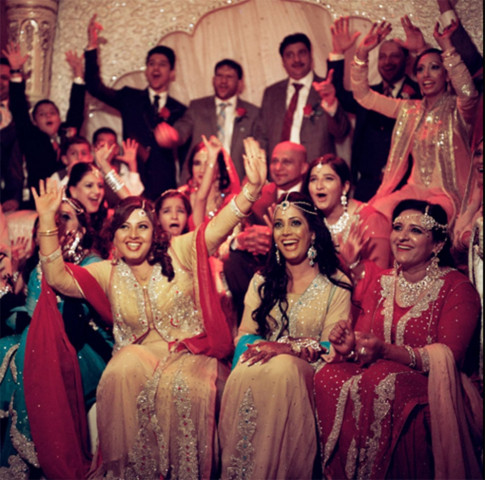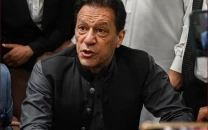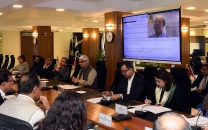Sara Hylton’s images depict Little Pakistan’s quiet conflicts
Though NYPD abandoned its secret surveillance of Muslims last year, distrust lingers

PHOTO: SARA HYLTON
“In the beginning, I went in thinking, I’m working in New York, I’ll behave like I’m in New York — it’s no big deal,” Hylton, 32, said by phone from Paris, where she was working on a project.
NYPD officer ‘converted’ to Islam to spy on Muslim Brooklyn College students
But she was stymied at first. Though the Police Department abandoned its secret surveillance of Muslims last year, distrust lingers. The men and women Hylton met in Midwood, Brooklyn — the center of Little Pakistan — were not eager to invite a spotlight on their lives.

Though Hylton is not Muslim, she was advised to wear a head scarf, and when she did, that world opened up to her. She was invited to tea and to weddings; one young woman, Aisha, painted her with henna.

She began to realise that her project, part of a fellowship from the Magnum Foundation, was about many things, and that the everyday tensions roiling Little Pakistan were familiar, including quiet conflicts of religion and cultural expression, and of young people’s repurposing traditions to suit the times.

Aisha told Hylton that the decision about whether to wear a traditional head scarf had been left to her and that “I’m choosing to wear it.” Hylton met a woman named Irram at a wedding and asked her if she would marry anytime soon. “She said, ‘No, I really respect my culture, but I want to finish my education. That’s the most important thing to me.’”

'Unprecedented' rise in anti-Muslim backlash in US post Paris attacks
Hylton said she was dismayed at the bigotry that had emerged since the terrorist attacks in Paris last month. “You go to this community in Brooklyn, and of course their culture is different, but these are just human beings,” she said. “These are people who are good, they’re working hard, they’re trying to make a life for themselves and their children.”

PHOTOS: SARA HYLTON
This article originally appeared on The New York Times, a partner of The Express Tribune.



















COMMENTS
Comments are moderated and generally will be posted if they are on-topic and not abusive.
For more information, please see our Comments FAQ